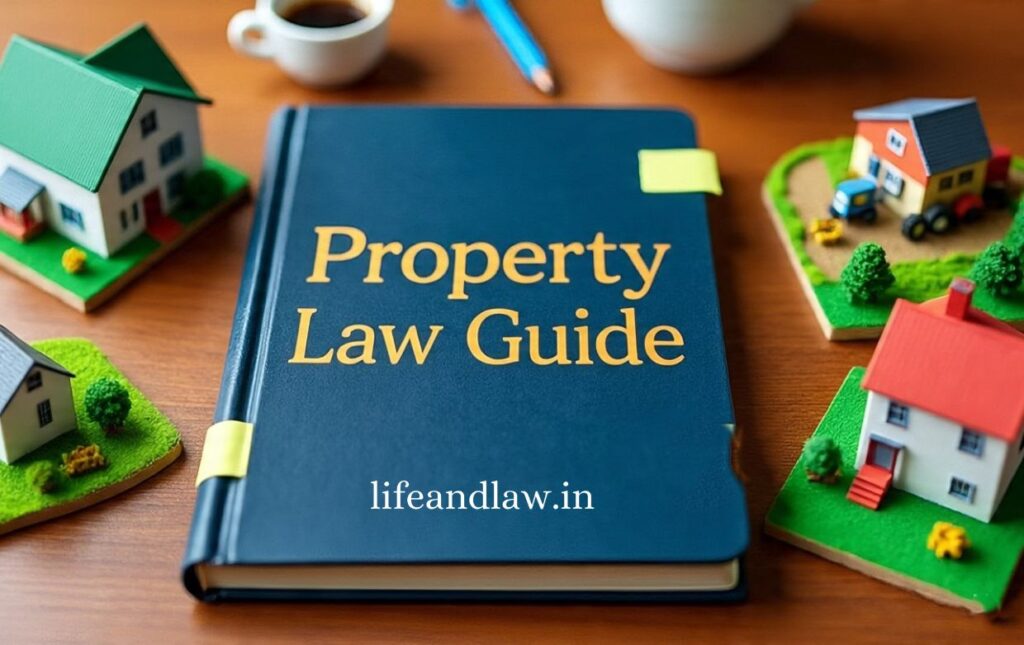Trending

Property purchases include major financial and legal responsibility. Understand the legal documentation involved when buying, selling, or transferring property. These documents not only serve as proof of ownership, but they also help to avoid disputes, fraud, and other issues that might result from imprecise or incomplete paperwork.
The purpose of this article is to provide a detailed review of important property documents, explain why they are required, and show you how to handle them correctly. With the necessary expertise, you can ensure that your property purchase runs smoothly, securely, and lawfully.
These are the primary legal documents that establish who owns a piece of land or property:
The 7/12 extract, a key document in Maharashtra, contains complete land information. It’s divided into:
Form 7 (Record of Rights)– Information about location, ownership, caste, land usage, and mutations.
Form 12 (Crop Register) – Crop patterns, farming techniques, and water supplies.
Why it matters:
It establishes legal title, identifies encumbrances (such as loans or disputes), and is required for loans and government programs. Available online or at Talathi offices.
This document summarises a person or family’s account number as well as their overall land holdings. It comprises survey numbers, area, ownership information, and land use rights.
Why it matters:
It acts as proof of ownership and helps with legal, financial, and tax issues. This listing only includes cultivable land. Available online or from local revenue offices.
Mutation represents ownership changes resulting from a sale, inheritance, or gift. Maintained in registers like:
6A: Disputed cases
6B: Delays
6C: Inheritance
6D: Subdivision records
Why it matters:
It confirms ownership transfers and updates revenue data.
The property card, which is used in municipal or urban zones, contains information about the land’s location, ownership, survey numbers, and land class.
Why it matters:
It provides legal clarity throughout a sale, mortgage, or transfer. Highlights encumbrances or dues. Available at city survey offices and online.
Indexes are maintained by registration agencies and serve to validate the registration of property transactions.
Index II (most important): Contains transaction facts, parties involved, sale/gift/lease deed information, stamp duty, registration information, and complete property specs.
Why it matters:
Required for ownership verification, sales, or further legal action.
Shows the government tax levied on a property, which includes:
Property type, area, tax calculation, and usage (residential, commercial, agricultural).
Ownership details
Tax recovery information
Why it matters:
Required for taxation, legal valuation, and property registration.
These ensure that a building is built legally, with the necessary approvals and laws.
Following document verification, local officials issue legal authority to commence construction.
Why it matters:
Without it, construction is considered illegal and may result in fines or demolition.
An approved building plan displaying the layout, floor-plan design, amenities, and structural components.
Why it matters:
Confirms that construction meets building codes and municipal regulations.
This post-construction certification confirms that the building complies with all legal and safety norms and is suitable for usage.
Why it matters:
Without it, utility connections (water, electricity, and gas) may not be made. It is also necessary for selling, insuring, and occupying the structure.
These concern taxation and financial duties on the property.
Proof that property taxes were paid. It is required during the sale or mutation to show that there are no outstanding dues.
Issued by authorities such as towns or housing organisations, it indicates that there are no complaints to the property.
Why it matters:
Required for sale, mutation, registration, and legal procedures.
Property documentation are required at several important stages:
Purchase/Sale: For ownership transfer and legal verification.
Inheritance: Update records and transfer privileges.
Registration: To register property in your name with legal backing.
Preparation: Draft all documents in accordance with legal guidelines, ideally with the assistance of an expert.
Verification: Ensure legitimacy, cross-check details, and have appropriate witnesses.
Registration: Please submit all supporting documentation and payments to the Sub-Registrar’s Office.
Understanding property paperwork is vital for protecting your legal rights, ensuring smooth transactions, and avoiding future problems. Every document, whether linked to ownership, building, or taxation, has a specific purpose in authenticating and protecting your property.
This article is written by Adv. Abdul Mulla, an experienced legal practitioner and the creator of www.asmlegalservices and www.lifeandlaw.in. His platforms provide trustworthy legal advice to assist people handle difficult property issues with confidence.
Adv. Abdul Mulla (Mob. No. 937 007 2022) is a seasoned legal professional with over 18 years of experience in advocacy, specializing in diverse areas of law, including Real Estate and Property Law, Matrimonial and Divorce Matters, Litigation and Dispute Resolution, and Will and Succession Planning. read more….
Copyright BlazeThemes. 2025